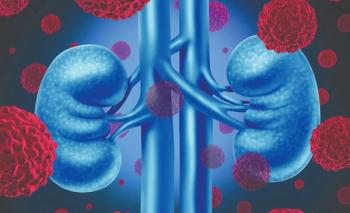
Oncology Practices Must ‘Stay United’ to Manage Chemo Shortages
Lucio N. Gordan, MD, also discusses how increasing domestic manufacturing of chemotherapy may help in alleviating the ongoing shortages of carboplatin and cisplatin in the United States.
Institutions and large oncology practices need to stand together and push for legislative measures that could mitigate the ongoing carboplatin and cisplatin shortages impacting cancer care across the United States, Lucio N. Gordan, MD said in an interview with CancerNetwork®.
Gordan, president and managing physician at Florida Cancer Specialists & Research Institute who sees patients in the state-wide practice's Gainesville Cancer Center, described how efforts from major oncology organizations such as the American Society of Clinical Oncology (ASCO) and the Community Oncology Alliance (COA) aim to bring about legislative measures from federal and state governments that would ensure adequate access to chemotherapy drugs. He also discussed how increasing quality-controlled chemotherapy manufacturing in the United States may be a sustainable approach for improving access to these drugs.
As for handling the shortage in the short term, Lucio stated that his clinic may try to substitute carboplatin or cisplatin for alternative therapies. However, he acknowledged that there are not enough data to fully support switching from one class of drugs to another, as the comfort and tolerability of these other treatments may be an issue for patients.
Transcript:
I think it's very important that the large practices and institutions in the country stay united. The [COA], [ASCO], and others are trying to push legislation that would protect the consumer, the patients, and us to make sure that we have a proven supply. We have to make efforts to bring manufacturing back to the U.S., so we can make sure the quality is top notch. But if it stays overseas, there are ways to monitor quality as well. But we need to make sure that we have a sustainable approach.
If there are ways that a drug can be replaced, we try to do drug replacement for another potential best second drug, but it's frequently a problem. There are just not enough studies to allow us to replace carboplatin/cisplatin with another class of drugs with the same level of comfort from a scientific standpoint. Essentially, we need to stick together and try to work with the federal government and state government to make sure that they understand the magnitude of the problem.
Newsletter
Stay up to date on recent advances in the multidisciplinary approach to cancer.



















































